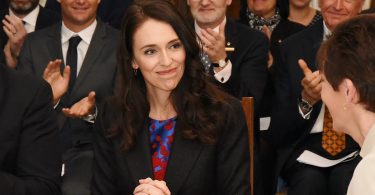A landmark deal has been agreed at the Paris climate change summit. All countries are now committed to cut carbon emissions, the first deal of its kind.
Negotiations lasted two weeks and involved almost 200 countries. An agreement between so many countries on climate change is being described by many as “historic.”
British Prime Minister David Cameron said the deal is “a huge step forward in securing the future of the planet”.
The deal called to to peak greenhouse gas emissions as soon as possible, and to keep global temperature “well below” 2C. Efforts will be made to aim for a rise of only 1.5C.
$100 billion (£65 billion) a year for developing countries will be given by 2020 in climate finance. A further financial commitment has also been agreed.
After much anticipation, President of the UN climate conference of parties (COP) and French Foreign Minister Laurent Fabius said on Saturday, “I now invite the COP to adopt the decision entitled Paris Agreement outlined in the document.
“Looking out to the room I see that the reaction is positive, I see no objections. The Paris agreement is adopted.”
The packed hall of representatives rose to their feet, applauding that the deal was adopted.
American President Barack Obama said, “Together, we’ve shown what’s possible when the world stands as one.”
The lack of legal binding in the deal has led to some criticism.
Nick Dearden, director of campaign group Global Justice Now, said “It’s outrageous that the deal that’s on the table is being spun as a success when it undermines the rights of the world’s most vulnerable communities and has almost nothing binding to ensure a safe and liveable climate for future generations.”
China’s top negotiator Xie Zhenhua commented that the pact is not perfect, but said, “this does not prevent us from marching historical steps forward.”
The Paris agreement comes six years after the disappointing Copenhagen climate talks.
Legally binding emissions targets were rejected both then, and now in Paris. In 2009 many developing nations, such as China and India, believed binding targets would slow economic growth.
A system of Intended Nationally Determined Contributions (INDCs) has instead been adopted.
Countries will outline their own plans on reducing emissions after 2020, that will help keep global temperature rise “well below” 2C, the main aim of the Paris deal.
Speaking on the BBC’s Andrew Marr programme, Energy Secretary Amber Rudd said the UK is “absolutely committed” to the Paris agreement.
Ms.Rudd added, “We had to get the balance of being totally inclusive, getting 200 countries to sign up, but also not having such a tough compliance regime that you can say we had at Kyoto, which didn’t succeed, that some countries would step away. I think this is the right balance, but it is a compromise. It is nevertheless a historic moment.”








